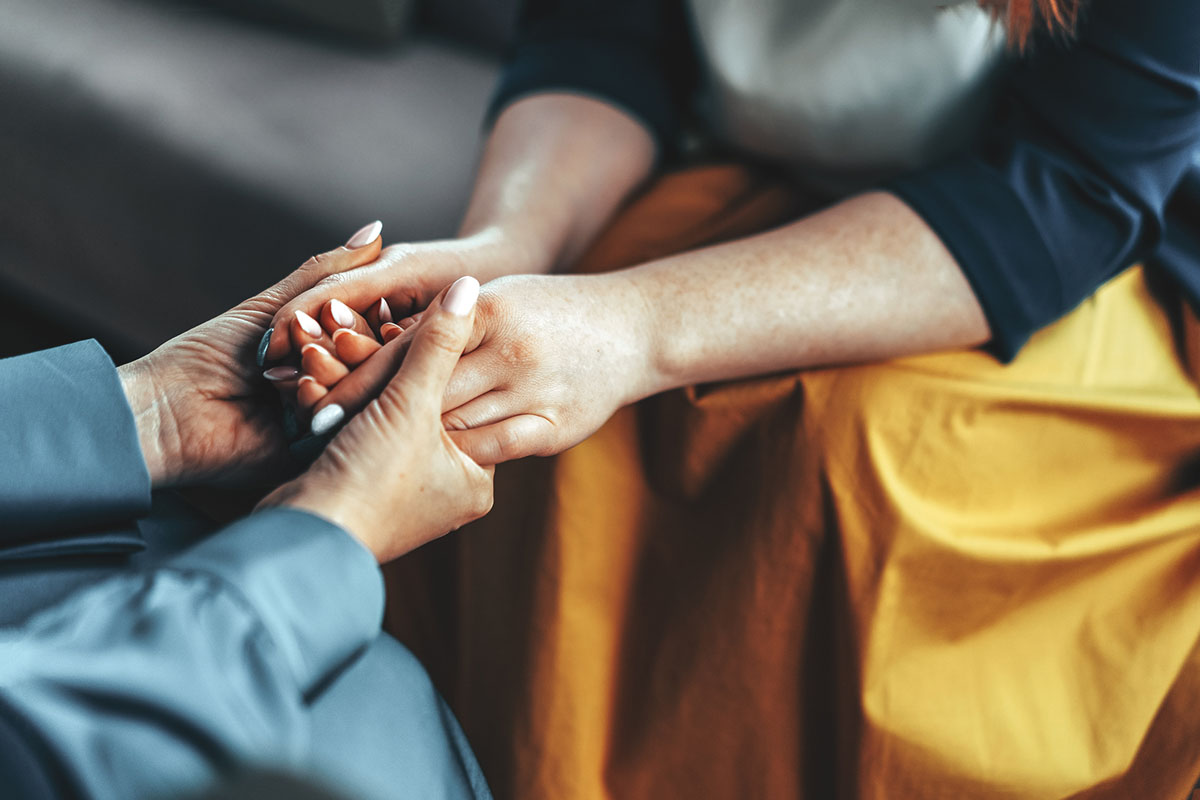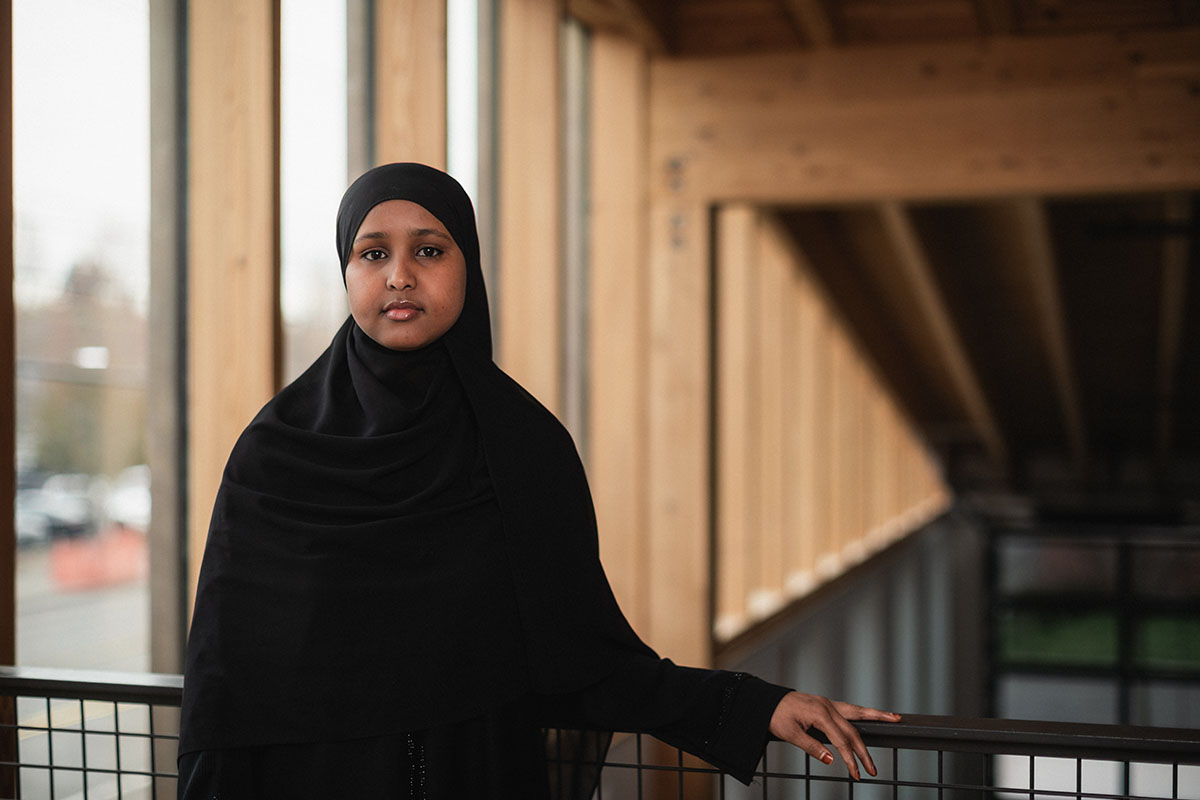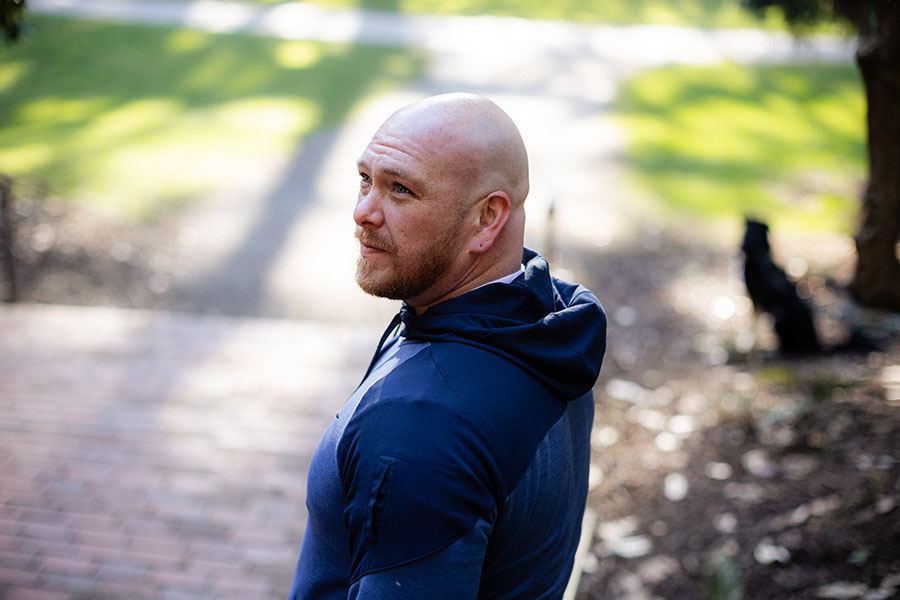Câu chuyện của Maddie: Trầm cảm và lo âu quá độ hình thành trải nghiệm tuổi thanh thiếu niên như thế nào

Thoạt nhìn, Maddie dường như là một thiếu niên điển hình. Cô sơn móng tay, học trung học phổ thông và dành thời gian bên bạn bè. Cô ấy có một tính cách sôi nổi, cuốn hút đến mức bạn có thể trò chuyện hàng giờ mà không thấy chán và cô ấy mơ ước trở thành y tá.
Nhưng năm 8 tuổi, cô đã trải qua cơn hoảng loạn đầu tiên.
Giờ đây, ở tuổi 17, cô không còn xa lạ gì với thế giới phức tạp của những vấn đề sức khỏe tinh thần. Cô đối mặt với chứng trầm cảm nghiêm trọng, lo âu quá độ mãn tính và rối loạn căng thẳng sau chấn thương. "Tôi biết mình đã vật lộn với chứng lo âu quá độ và trầm cảm [từ khi còn nhỏ] vì những điều xảy ra trong cuộc đời mình. Mất mẹ. Bố thì đi đi về về. Có quá nhiều thứ mà một đứa trẻ không nên phải trải qua – vậy mà chúng cứ lặp đi lặp lại trong tâm trí tôi.”
Maddie không đơn độc trong việc đối mặt với những thách thức về sức khỏe tinh thần. Gần 50% thanh thiếu niên ở Hoa Kỳ, tuổi từ 13-18, bị rối loạn sức khỏe tinh thần; thanh thiếu niên cũng phải đối mặt với tỷ lệ rối loạn sức khỏe tinh thần đồng thời xảy ra cao hơn người lớn. Tình trạng lo âu quá độ, trầm cảm, rối loạn căng thẳng sau chấn thương và lạm dụng chất gây nghiện có thể là những vấn đề thường gặp ở thanh thiếu niên. Điều này có thể gây ra nhiều xáo trộn nghiêm trọng trong cuộc sống của các em, đặc biệt là trong những giai đoạn phát triển quan trọng. Có lẽ cần phải định nghĩa lại từ điển hình.
Về lo âu quá độ và trầm cảm
Từ khi còn nhỏ, Maddie đã bắt đầu mất đi những người hỗ trợ quan trọng, bao gồm ông và mẹ. Cô thường cảm thấy cuộc sống không có mục đích. Cuộc sống gia đình của cô không phải lúc nào cũng an toàn. Những biến cố lớn trong cuộc sống bắt đầu ảnh hưởng đến sức khỏe tinh thần của cô. Cuối cùng, cô tìm đến chất gây nghiện như một cách để làm tê liệt những trải nghiệm tiêu cực mà mình đã trải qua.
Maddie luôn sống trong cảm giác lo âu quá mức và trầm cảm, những cảm xúc ấy dần trở thành một phần quen thuộc trong cuộc sống hằng ngày. Cô thức dậy, kiểm tra điện thoại, chuẩn bị sẵn sàng và đến trường - nhưng vẫn có những suy nghĩ không cách nào buông bỏ được. Cô chia sẻ: "Tôi lo lắng về những gì người khác đang nghĩ. Tôi dám chắc người đó ghét tôi. Trong tâm trí mình, tôi chưa từng cảm thấy mình có thể chiến thắng.”
Cô cảm thấy tức giận hoặc bị choáng ngợp cảm xúc, đặc biệt vào ban đêm. Cô nói: "Cảm xúc trở nên tồi tệ nhất khi tôi ở một mình. Những lúc ở một mình vào ban đêm là khoảng thời gian khó khăn nhất với tôi." Lo âu quá độ và trầm cảm thường khiến người bệnh cảm thấy như mình luôn là kẻ thua cuộc. Dẫu có chơi bao nhiêu ván hay rẽ vào bao nhiêu lối đi khác nhau, thì những cảm xúc đó vẫn bám theo, khiến cô không thể đứng vững.
Sự lo âu quá độ triền miên dần bào mòn sự tự tin của cô, cố gắng rót vào tai cô những lời dối trá mà chỉ cô mới nghe thấy. Những suy nghĩ ấy cứ lặp đi lặp lại, khiến cô hoang mang, nghi ngờ bản thân và kiệt sức suốt nhiều ngày. Theo thời gian, điều đó khiến cô dần suy sụp, để mặc trầm cảm len lỏi và chiếm lấy tâm trí. Cô cảm thấy nặng nề, trống rỗng đến nghẹt thở. Khi trầm cảm trở nên quá sức chịu đựng, cô bắt đầu bị cuốn vào vòng xoáy tăm tối – hình thành một cuộc chiến sinh tồn mới trong tâm trí cô. Cô có thể cảm thấy khó khăn cả trong những hoạt động giao tiếp hoặc nhiệm vụ nhỏ, như nói chuyện với bạn bè hoặc tham gia hoạt động trong lớp. Chu kỳ này khiến cô nhớ rằng những tổn thương và mất mát trong quá khứ vẫn còn ám ảnh cô – đôi khi lớn đến mức cô cảm thấy không thể đối mặt.
Tìm đến chất gây nghiện để đối phó
Sau khi ông nội qua đời, cô thường xuyên sử dụng chất gây nghiện. Cô chia sẻ: "Ông là thế giới của tôi và khi mất đi ông, tôi rơi vào chuỗi ngày suy sụp và bắt đầu sa vào con đường nghiện ngập". Cô ý thức được đây không phải là cách đối phó đúng đắn. "Thành thật mà nói, nghiện ngập chẳng giúp ích gì. Đó chỉ là cách để tôi trốn tránh những gì đang xảy ra." Cô đã sử dụng chất gây ảo giác, rượu và thuốc kê đơn trong giai đoạn này. "Khi bắt đầu dùng đến những chất này, tôi đã nghĩ rằng tôi có thể thoát khỏi nó. Bố tôi là một con nghiện, và không ai chú ý đến ông ấy. Nhưng tôi đã không nghĩ về thực tế rằng, bạn biết đấy, [nghiện ngập] đã giết chết mẹ tôi."
Cô ấy bắt đầu thay đổi theo hướng trở thành một con người xa lạ với chính mình, dù những dấu hiệu cảnh báo đã ở ngay trước mắt. "Trong đầu tôi đã có thể biện minh cho điều đó. "Tôi không phải là con nghiện - họ là những con nghiện. Đó không phải là tôi!".
Nhưng cuộc sống nhanh chóng thay đổi. Những người khác ngày càng lo ngại về vấn đề sức khỏe của cô, dẫn đến một cuộc đối đầu với một thành viên trong gia đình.
Xây dựng lại cộng đồng của mình
Maddie được đưa đi cai nghiện. Đây chính là hồi chuông cảnh tỉnh mà cô cần, mở ra cho cô một hành trình hoàn thiện bản thân. Sau khi cai nghiện, cô đã sử dụng liệu pháp và thuốc men để giúp hỗ trợ sức khỏe tinh thần. Dù vẫn thấy khó để làm đúng những điều ấy, cô vẫn hy vọng rằng mọi chuyện rồi sẽ khác.
Hiện tại, Maddie theo học tại Học viện Harmony – một trường trung học phổ thông chuyên cung cấp môi trường giáo dục an toàn, lành mạnh và đầy hỗ trợ dành cho những thanh thiếu niên đang trong hành trình hồi phục. Trong quá trình tìm kiếm thêm tài nguyên hỗ trợ, cô đã tìm thấy 4D Recovery, một trung tâm dành cho thanh thiếu niên, chuyên cung cấp các dịch vụ phục hồi cho những người đồng cảnh ngộ, cùng với sự hỗ trợ từ cộng đồng, gia đình và các hoạt động ngoài giờ học. Nhờ được tiếp cận những không gian có ý nghĩa quyết định đến cuộc sống, Maddie có thể chăm sóc sức khỏe tinh thần của mình mà không còn bị cản trở bởi việc lạm dụng chất gây nghiện. Cô suy ngẫm: "Bạn không thể xây dựng một ngôi nhà trên nền móng lung lay. Khi mang trong mình sang chấn tâm lý, bạn không thể xây dựng những trải nghiệm mới vững chắc trên nền tảng đó.
Maddie vẫn đang nỗ lực để hiện thực hóa lý tưởng của mình và đã đi một chặng đường dài. Cô không ngừng nỗ lực để vượt lên trên mọi thử thách.
Ngoài nhận dịch vụ chăm sóc lâm sàng, cô cũng có nhiều cách đối phó khác và có những người thân yêu hỗ trợ: gia đình, bạn trai, cùng những thói quen như xem TV, nấu ăn và pha trà giúp làm dịu tâm trí. Các tài nguyên và cố vấn tại 4D Recovery và Học viện Harmony nhắc nhở cô ấy rằng cô ấy không đơn độc trong hành trình của mình. Vào ban đêm, khi cảm giác cô đơn len lỏi, cô cho chú chó của mình ăn – và nhận lại những cái ôm đầy ấm áp.
Có lẽ quan trọng nhất, Maddie có 'người an ủi' của cô ấy, một người mà cô thấy không thể thiếu trong hành trình phát triển của mình. Cô nói về một người bạn đồng cảnh ngộ tại 4D Recovery: "Cô ấy là người mà tôi có thể tin tưởng và tôi có thể nói điều đó bằng cả trái tim mình". Cô dựa vào điều đó để tiếp tục vun đắp và phát triển cộng đồng của mình. Cô chia sẻ: "Tôi luôn sẵn sàng đồng hành cùng bạn bè của mình. Nếu bạn cần bất cứ điều gì, bạn luôn có thể đến với tôi. Luôn có sự giúp đỡ, bạn chỉ cần tìm đúng người."
Maddie nhận ra rằng nhiều thanh thiếu niên khác từng trải qua hoàn cảnh tương tự cũng đang tìm kiếm sự kết nối, thấu hiểu và những cuộc trò chuyện với những người đồng cảnh ngộ — điều mà cô tin là yếu tố quan trọng nhất trong hành trình đối mặt với các thách thức về sức khỏe tinh thần.
Lời khuyên cho cha mẹ của thanh thiếu niên
Maddie có một số lời khuyên rõ ràng cho các bậc cha mẹ giúp con cái họ vượt qua những thách thức: "Đừng la mắng con vì con không biết cách đối phó với mọi thứ. Đừng nói với con rằng vấn đề không có thật. Cho con thấy sự hỗ trợ nhưng đừng ép buộc con nhận điều trị sức khỏe tinh thần - cách này sẽ không hiệu quả nếu con không muốn." Thanh thiếu niên đối phó với các trạng thái cảm xúc phức tạp và không có sự hỗ trợ thích hợp từ cha mẹ có nhiều nguy cơ về sức khỏe thể chất và tinh thần kém hơn.
Maddie đã nhận ra rằng mặc dù việc sử dụng chất gây nghiện không giúp ích gì cho quá trình này, nhưng áp lực hoặc thiếu sự hỗ trợ từ cha mẹ cũng không giúp ích gì - nó chỉ làm cho các mối quan hệ thêm rạn nứt. Cô khuyên: khi con quý vị đến gặp quý vị và chia sẻ về những thách thức này, tránh tức giận và thay vào đó tập trung vào việc lắng nghe. Dành thời gian để bình tĩnh lại trước khi phản ứng với các tình huống dễ gây xáo động cảm xúc. Nó có thể tạo nên sự khác biệt giữa sự tương tác lành mạnh và không lành mạnh với thanh thiếu niên - do đó giúp tạo dựng nền tảng tin tưởng và giao tiếp tốt hơn trong tương lai.
Gặp lại Maddie, cô gái lạc quan
Sau hơn một năm hồi phục, Maddie đang đạt được những tiến bộ mà cô từng hy vọng và cảm thấy vững tin vào hành trình phục hồi cũng như khả năng chăm sóc sức khỏe tinh thần của chính mình. Cô yên tâm và hào hứng chia sẻ hành trình của mình với những người khác. Cô cười vang, cổ vũ bạn bè hết mình và luôn vung tay đầy biểu cảm khi nói chuyện. Việc vượt qua các vấn đề sức khỏe tinh thần mỗi ngày không phải lúc nào cũng dễ dàng, nhưng cô ấy đã tìm thấy tia hy vọng – điều mà cô tin là xứng đáng để chia sẻ. "Tôi vẫn cảm thấy lo âu quá độ và trầm cảm, nhưng việc đối mặt trở nên dễ dàng hơn. Hôm nay là một ngày mới. Ngày mai sẽ là một ngày mới. Tôi vẫn đang cố gắng sống trong hiện tại". Thiếu niên điển hình này có những điều tuyệt vời đón chờ phía trước.
Quý vị không đơn độc
CareOregon là đối tác cộng đồng lâu năm và ủng hộ Trung tâm 4D Recovery dành cho thanh thiếu niên.
CareOregon nỗ lực làm việc để đảm bảo các hội viên và cộng đồng của chúng tôi được tiếp cận với các tài nguyên về sức khỏe tinh thần chất lượng cao.
Nếu quý vị hoặc người thân yêu đang phải vật lộn với vấn đề sức khỏe tinh thần hoặc đang trong quá trình hồi phục, hãy liên hệ trực tuyến với chúng tôi để có thêm thông tin và tìm tài nguyên hỗ trợ. Nếu quý vị là hội viên của gói Oregon Health (OHP), chúng tôi sẽ chi trả cho nhiều dịch vụ khác nhau. Vui lòng tìm hiểu thêm trên trang Sức khỏe tinh thần và cai nghiện chất gây nghiện của chúng tôi.








